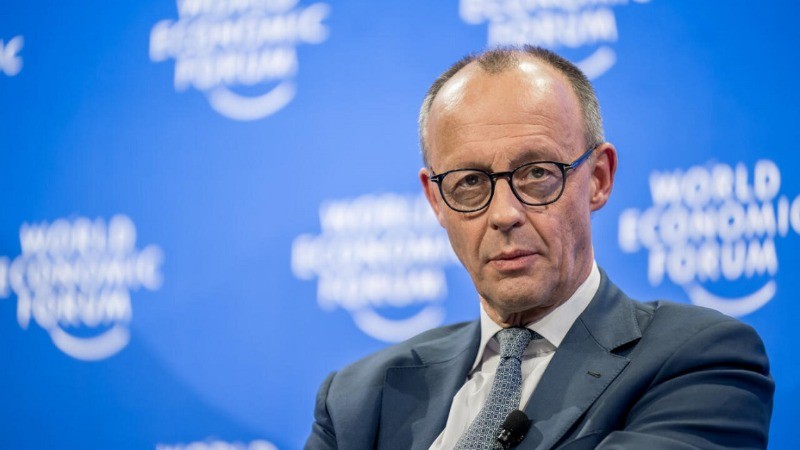
BERLIN: Friedrich Merz, the man likely to be Germany’s next chancellor, is focusing on key issues like European Union (EU) regulations, government bureaucracy, work ethics, and energy costs. Merz believes Germany needs a strong and steady leader, especially in today’s uncertain world. He argues that he can do a better job than the current chancellor, Olaf Scholz, from the center-left Social Democrats.
Despite facing protests, Merz remains strong in the polls. However, people have different opinions about him. Some see him as a bold conservative, while others believe he is a skilled economist. If his party, the conservative CDU/CSU, wins the election on February 23, he will need to prove he can lead effectively.
Merz's party has been leading in the polls for three years and might win twice as many votes as Scholz’s SPD. Some media even call him Germany’s “chancellor-in-waiting.” However, enthusiasm for him is not high. His party's support is stuck at around 30 percent, one of the lowest in its history. Even though Scholz’s approval ratings are very low, Merz has not gained much momentum.
One challenge Merz faces is his wealthy background. As a former corporate lawyer and chairman of BlackRock Germany, he has made more money than most German chancellors before him. Some worry that flying his private plane makes him seem out of touch. However, polls show that people trust him when it comes to the economy.
Germany’s economy is struggling, with fears of a third straight year of recession. Many people feel hopeless about the future. Only a quarter of Germans believe the economy is in good shape. Merz wants to cut taxes, reduce bureaucracy, and lower welfare spending to help businesses grow again. However, he will need to convince people that his plans will work.
Another major issue is immigration. Germany has welcomed over 3.5 million refugees, making up 4 percent of the population. Merz has been critical of former Chancellor Angela Merkel’s decision to open the borders in 2015. Recently, he tried to pass tougher immigration laws but failed. Even though two-thirds of Germans agreed with his proposals, the move did not help him gain support in the polls.
A bigger problem for Merz is that many Germans have lost faith in politicians. Surveys show that most people don’t trust political parties anymore. This distrust is even growing among middle-class voters, who have traditionally supported the CDU/CSU.
Merz has been involved in politics for decades. He first joined the CDU at 17 and later competed with Angela Merkel for party leadership but lost. He left politics in 2009, returning in 2018, only to lose two more leadership battles before finally becoming CDU leader in 2022.
If Merz becomes chancellor, he will face a difficult road ahead. He will likely need to form a coalition with at least one of the current ruling parties, which may not inspire much confidence in voters. Meanwhile, the far-right AfD is gaining ground and could become a major political force in the coming years.
Merz has never held a ministerial position, and his leadership skills have only been tested in opposition. If he wins, he will have little time to act. He will need to introduce effective reforms quickly and give Germans hope for the future. The country is watching to see if he is the right person to lead Germany out of its current struggles.